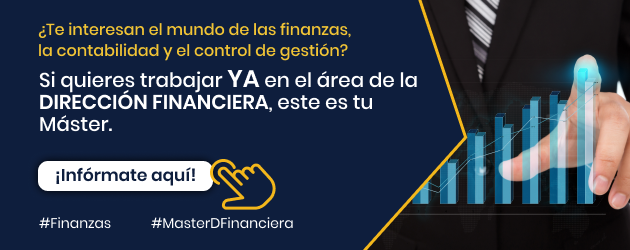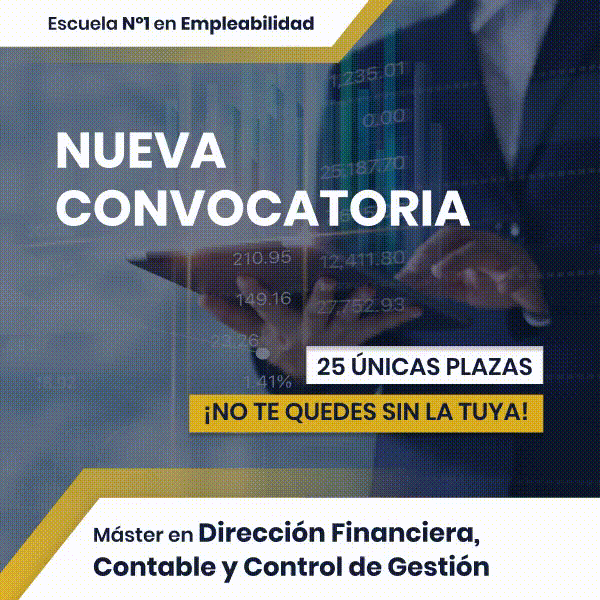Startup development process
He growth or development of a startup It is done in phases or milestones:
First phase or milestone
In this phase or milestone that could extend up to the first two years, the startup is testing your prototype and business model. You may have to make adjustments to the value proposition and/or priority segments, this is now called “pivoting” in the new jargon, but the measure of your success will be customers, sales and collectionss (customers are willing to pay for such an innovative solution).
Being a little demanding on deadlines, except startups in the biotechnology industry, at the end of the second year, the startup should be close to having a EBITDA positive.
Second phase or milestone
After this first milestone, assuming that the startup is being successful (we are not going to imagine the other option because we unfortunately know what it leads to), the company considers the new challenges to continue growing: What if we complete functionalities of the prototype? What if we carry out an online marketing campaign for our B2C clients? What if we hire a commercial manager for our B2B clients? What if we plan to expand to another location/market?
All of these are “wonderful growth challenges” but it is clear that they need financial resources. At the university it is explained that growth consumes resources. At the beginning of this second milestone, the founding partners must budget and dimension financial requirements to get to the third. But who is going to provide these resources? It is clear that either the current partners or third-party creditors contribute them.
Third phase or milestone
In general, it seems difficult for the founding partners to be able to provide these new required resources; the normal thing is that they have reached this point with a certain personal sacrifice. On the other hand, the startup “does not have any more debt”, we have explained the binding of the maximum leverage of the 50% (the startup is supposed to have consumed it with a microcredit, ENISA, etc.).
This situation logically leads us to the fact that these new resources have to come in the form of capital (equity), that is, you have to give entry to new investors in the capital of the startup, these are private investors or Business Angels (they will logically be more “Business” than “Angels”).
Who are Business Angels?
Now we have many questions about: who are they, what do they want and how do they think these so-called Business Angels? Where will I meet them? What will the entry process be like and, above all, the future relationship once they are within the company? How will I value my startup to give it the appropriate percentage to the Business Angel for their investment in the company? What will the degree of freedom and corporate governance of the startup with this new investor in the possible administrative bodies of the company? What financial and legal clauses will be imposed upon entry and exit of the startup? How long will you want to stay in the company?
The first thing we must reflect on is the profile of these private investors or Business Angels. Some profiles are very characteristic in all geographies. First of all, we could say in general that Business Angels are Physical persons, they are not entities or institutions such as Venture Capital or Private Equity. This people they invest their own money, not third party money. They usually correspond to various profiles:
- Investors, entrepreneurs and “family offices” who want to allocate a portion of their assets to this type of alternative investments.
- Former company executives who also want to invest some of their assets in innovative startups in sectors that they usually know very well. This type of Business Angel profile is very interesting, would not only provide the capital required but also what Americans call “smart money” (I would help the founders in contacts with suppliers, clients, regulators, etc.).
- Companies that are starting “corporate entrepreneurship” programs to incubate and/or accelerate startups close to your business and that can promote innovation within the organization. In Spain, among others, corporate programs Telephone, Wayra and that of Mercadona with his Shuttle Project. In the United States there is a fourth group of entrepreneurs who have already “gone through the cycle”: they created the company, made it grow, and subsequently sold it. With the resources from the sale they have entered new startups, feeding a “virtuous circle”, very characteristic of the ecosystem, for example. Silicon Valley.
What do Business Angels do?
They invest relatively small amounts (between 5.00 and 500,000 euros) in initial phases, in the terminology it is said “pre-seed” or “seed”. They do not intervene in the day-to-day management of the startup, although in the case of having invested significant amounts The normal thing is that they are on the Board of the startup or ensure close monitoring of its evolution. As we have mentioned, what they expect is multiply your initial investment by a multiplier “n” after having been a time of “m” years in the startup. It is not normal therefore for them to expect to receive dividends for their investment but rather their profitability will come at the time of disinvestment ("exit").
Therefore, its profitability (IRR-internal rate of profitability) will come from the equation:
(1 + IRR) m =n
For example, if the investor left the startup doubling (n=2) the investment he put in in the fifth year (m=5), then his IRR would be 15%.
Normally they always invest in a minority, shares below 20-25% although they can exercise very important control of the startup through the clauses that are introduced in the Partners Agreement.
It is interesting to take a look at the annual report that AEBAN (Spanish Association of Business Angels) makes about the Robot portrait of the Business Angels in Spain. The book by Jon Hoyos and María Saiz “Business Angels” is also very interesting.
In this phase of the company, these Business Angels are normally financial investors, not industrial investors, that is, the same day they are at the notary office signing the capital increase and its financial disbursement in exchange for a participation in capital of the startup are thinking about two things:
- How long will they be in the startup without selling (remember that they are illiquid investments and therefore for them to be able to sell it is because there is someone who comes in and buys their shares and/or participations).
- How much will the startup be worth at the time of its sale (the famous “exit”) and with it its participation (assuming there have been no dilutions in the process) and therefore what will have been the multiplier and its rate of return on the investment.
How can I contact a Business Angel?
There is no official census of private investors (Business Angels) is a “dispersed” group that generally likes anonymity and in many cases has irregular activity in terms of operations. It is true that there is a group of people in this country with certain tradition in this area and in many cases with an important media share. The real set of private investors is more like the invisible part of an iceberg and without a doubt in Spain it is growing and will do so more in the future.
One way to contact Business Angels in a more “wholesale” way is through the Business Angel Networks. In Spain there are very good Business Angel networks associated with AEBAN. Furthermore, it also highlights the Keiretsu Business Angels Network of San Francisco, the largest network of private investors in the world with more than 53 Chapters on three continents. In Spain the Network has four chapters (San Sebastián, Málaga, Barcelona and Madrid).
Business Angel Networks allow potential private investors to access a set of startups in search of financing and with appropriate selection criteria. At the same time, startups have access to an important investor community that could boost its financing.
How does a Business Angel value my startup?
Once the private investor and the startup reach an agreement first understanding agreement, there are two important parts of the process:
- The valuation of the startup and with it the percentage of equity that the investor will receive for the financing provided.
- The legal-legal envelope of clauses that the private investor is going to introduce in what is known as the Partners Agreement.
The valuation of a startup is a critical element of the future relationship between the founders and the private investor (Business Angel). It constitutes an entire methodology that is studied in academia along with conventional methods of company valuation.
Finally, a very important aspect of the investment of a private investor (Business Angel) in a startup has to do with the understanding and negotiation of clauses that are introduced in the Shareholders' Agreement that the investor "presents" to the founders in order to protocolize the relationship between both and safeguard their interests, despite being in a minority shareholding. They are clauses of very different nature:
- Of an economic nature (for example preferred dividend, preference in liquidation, anti-dilution clause, drag along, tag along, etc.).
- Political in nature (for example, commitments and obligations of entrepreneurs, composition of the board, veto rights, good leaver/bad leaver, etc.); order of stability (for example syndication agreements, stability agreements, lock-up, exclusivity and non-competition agreements, post-contractual non-competition, etc.). In short, an entire “legal-legal envelope” for which our best recommendation would be that said Partners Agreement be prepared and/or reviewed by lawyers who are experts in this type of investment operations in startups.
This post has been prepared by Fernando Moroy, professor of the Master of Financial Management at the EIP International Business School and president of the Madrid Chapter of the Business Angels Keiretsu Network of San Francisco.




































